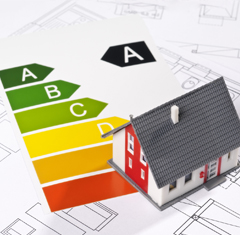ENERGY AUDITING.
Prior to the renovation of the building, it is recommended to conduct the assessment of the real estate.
One of these assessments is an Energy Audit.
What is the Energy audit?
Energy audit is a procedure which can be used to find out how energy is used, what are the measures to save it and how to reduce energy consumption of the audited object.
Energy audit gives an overview of the technical state of buildings and their energy losses. Making audit it is possible to identify priority work on the renovation of the building and to make the calculations for their payback.
Energy audit can be seen as part of the examination of the building, which aims to clarify the technical condition and energy consumption efficiency of the building.
Energy audit will help to make a long-term program of building renovation.
The result of the audit is a list of actions which is aimed to achieve energy savings. By taking these actions, you can greatly reduce the cost of the energy consumption of the building.
Energy Performance Certificate (EPC).
All residential and public buildings (as well as, for instance, household appliances) can be divided into classes of energy efficiency from A to H (A, B, C, D, E, F, G, H). Where A is the building with the lowest energy consumption and the most energy-efficient, and H is in opposite, with the highest energy consumption and the lowest energy efficiency.
Energy Performance Certificate (energy labeling) is required for:
- New buildings under construction.
- Public buildings with a floor area of over 500 m2.
- When selling or renting an existing building or part of it, if so required by the client or the lessee.
Energy Performance Certificate data are published in the State Register of the buildings.
Validity of the issued Energy Performance Certificate is 10 years. Energy Performance Certificate must be renewed after the reconstructions made in terms of improving energy efficiency (insulation of the facade or roof, heating system replacement, etc.) of the building.
Existing building energy performance certificate.
Energy Performance Certificate ( Energy labeling ) gives the buyer or lessee the information of an existing building or an apartment in terms of the amount of energy required to power it.
EPC can compare energy consumption in a building with the consumprion in similar buildings, in addition, it contains a list of measures to reduce energy consumption.
EPC reflects the energy consumption required for heating, air conditioning, ventilation and lighting of the building, as well as for the water heating and operations of the electrical installations.
The absence of EPC is a risk to the buyer: if before the deal the EPC was not requested , then
the future opportunity to contest the deal due to the excessive energy consumption is subsequently lowered.
The service of the EPC registration of an existing building contains:
- Inspection of the building.
- Registration of the Energy Performance Certificate.
- Recording data into the State Register of buildings.
Energy performance certificate of a new building.
Presence of the energy performance certificates (energy labeling) is a prerequisite for the issuance of a permit for the construction of the new building since 2009. Minimum energy efficiency requirements for the new (projected building) are quite high: it must be no less than the D-class.
The service of the EPC registration of new buildings contains:
- Calculation of the estimated energy performance based on the data provided by the construction company (structure, ventilation, etc.).
- Energy Performance Certificate.

